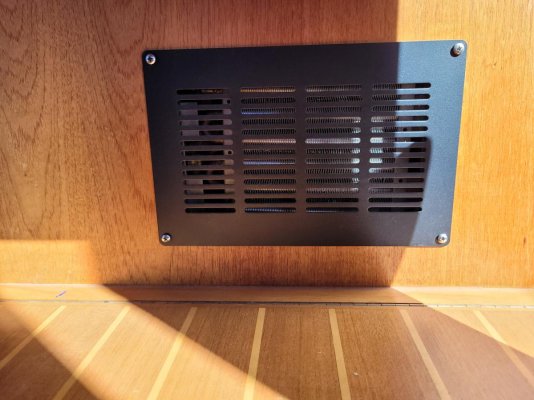Hippocampus
Guru
- Joined
- Jul 27, 2020
- Messages
- 3,917
- Location
- Plymouth
- Vessel Name
- Hippocampus
- Vessel Make
- Nordic Tug 42
Wondering about people’s thoughts.
Any way to figure out at what outside air and water temperature it’s more efficient to switch from reverse AC to hydronic heat if you have both?
Also figuring in you need to run a typical genset and it’s fuel use if using HVAC. Also figure a 40-50’ boat with 3 AC units and 3 zones for each type of heat source.
Any way to figure out at what outside air and water temperature it’s more efficient to switch from reverse AC to hydronic heat if you have both?
Also figuring in you need to run a typical genset and it’s fuel use if using HVAC. Also figure a 40-50’ boat with 3 AC units and 3 zones for each type of heat source.


